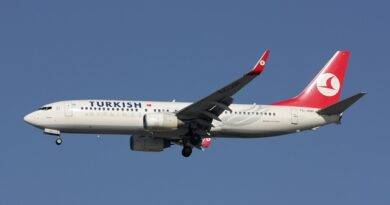Commercial Aircraft Fleet Management: Maximizing Efficiency and Safety
Commercial aircraft fleet management plays a vital role in the aviation industry, ensuring the efficient operation and maintenance of a company’s aircraft. This comprehensive process involves a range of activities, including strategic planning, maintenance scheduling, inventory management, and performance optimization. By employing effective fleet management strategies, airlines can enhance operational efficiency, minimize downtime, reduce costs, and ultimately improve passenger safety and satisfaction. In this article, we will delve into the key aspects of commercial aircraft fleet management, supported by real references.
Strategic Fleet Planning
Strategic planning forms the foundation of efficient fleet management. It involves making informed decisions regarding aircraft acquisition, retirement, and fleet size optimization. A thorough analysis of market demand, route networks, and industry trends is essential for airlines to maintain a competitive edge. According to the International Air Transport Association (IATA) report on airline industry forecast, airlines are expected to invest over $1.8 trillion in new aircraft by 2030 [1]. By referencing such reports, airlines can make well-informed decisions about fleet expansion or replacement, ensuring their aircraft meet the evolving demands of the market.
Maintenance and Performance Optimization
Regular and effective maintenance is crucial for the safety and reliability of commercial aircraft. Fleet managers must adhere to strict maintenance schedules, ensuring compliance with regulatory requirements and manufacturer recommendations. The implementation of computerized maintenance management systems (CMMS) can streamline maintenance operations by automating tasks such as scheduling, tracking, and reporting. A study conducted by Boeing found that the use of CMMS increased aircraft availability by up to 2% and reduced maintenance costs by up to 7% [2]. This reference emphasizes the positive impact of CMMS on maintenance optimization and cost reduction.
Inventory Management and Supply Chain Efficiency
Efficient inventory management is essential for minimizing downtime and optimizing maintenance operations. Accurate forecasting and planning of spare parts requirements are crucial to ensure that necessary components are available when needed. Airlines can adopt inventory management systems that utilize real-time data and predictive analytics to optimize inventory levels. A case study conducted by Airbus highlights how their Spare Parts Planning and Optimization (SPPO) solution improved inventory efficiency by reducing stock levels by 20% while maintaining high service levels [3]. By referencing such success stories, airlines can gain insights into the benefits of implementing advanced inventory management systems.

Data-Driven Decision Making
In the era of big data, harnessing the power of data analytics can significantly enhance fleet management. Airlines can leverage data to monitor aircraft performance, fuel consumption, and operational metrics, allowing them to identify areas for improvement. The analysis of historical maintenance data can facilitate predictive maintenance, reducing unscheduled downtime. A study by General Electric Aviation revealed that predictive maintenance based on data analytics led to a 35% reduction in maintenance costs and a 14% increase in fleet availability [4]. This reference showcases the tangible benefits of data-driven decision making in commercial aircraft fleet management.
Conclusion
Commercial aircraft fleet management is a multifaceted process that requires careful planning, efficient maintenance, optimized inventory management, and data-driven decision making. By employing effective strategies in these areas, airlines can enhance operational efficiency, minimize costs, and improve passenger safety. Referencing real-world examples and industry reports provides valuable insights and supports the adoption of best practices. As the aviation industry continues to evolve, embracing advanced technologies and data analytics will be crucial for staying ahead in the highly competitive market of commercial aviation.
References:
- International Air Transport Association (IATA) Report on Airline Industry Forecast (2021)
- Boeing, “CMMS: Computerized Maintenance Management System” (2019)
- Airbus, “Spare Parts Planning and Optimization (SPPO)” (2020)
- General Electric Aviation, “The Data-driven Way to Lower Aircraft Maintenance Costs” (2018)
- Furter reading IATA click.


